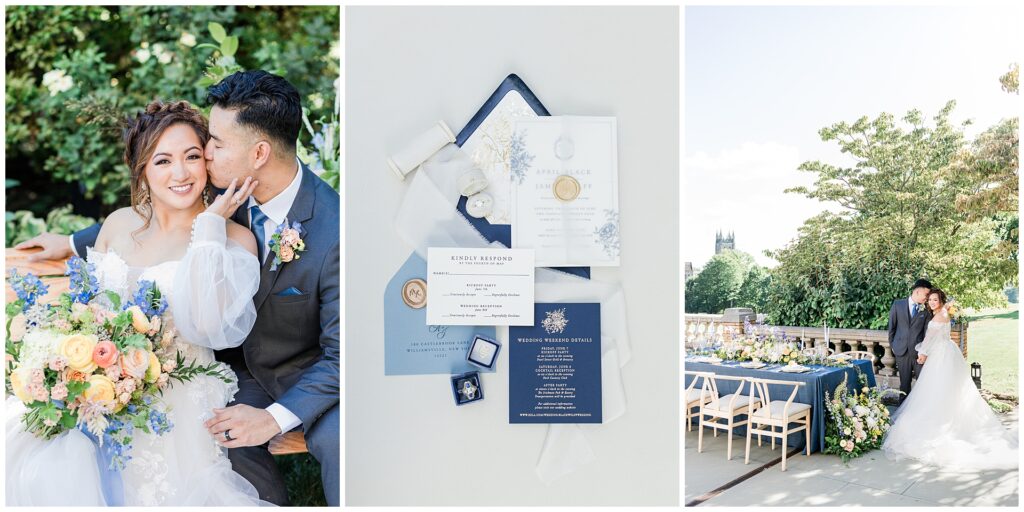
A Professional Photographer’s Guide to Choosing Between 8, 9, 10, or 11+ Hours of Coverage
One of the most common questions I hear from engaged couples—especially during our discovery calls (the calls that take place when an interested couple wants to learn more about me and my services before booking)—is, “How many hours of photography coverage do we really need?”
At first glance, it seems simple enough. But the truth is, your wedding day is a beautifully complex story, and capturing it fully requires more than just showing up with a camera. It requires intention, planning, and the right amount of time to tell your story with care.
As a Maryland wedding photographer serving DC and Northern Virginia couples with over 11 years of experience, I help couples plan their timelines before they book. That way, we know—together—exactly what coverage you need, no guesswork required. Below, I’m sharing what factors into that decision, what gets missed when time is tight, and how to confidently choose between 8, 9, 10, or 11+ hours of wedding day photography.
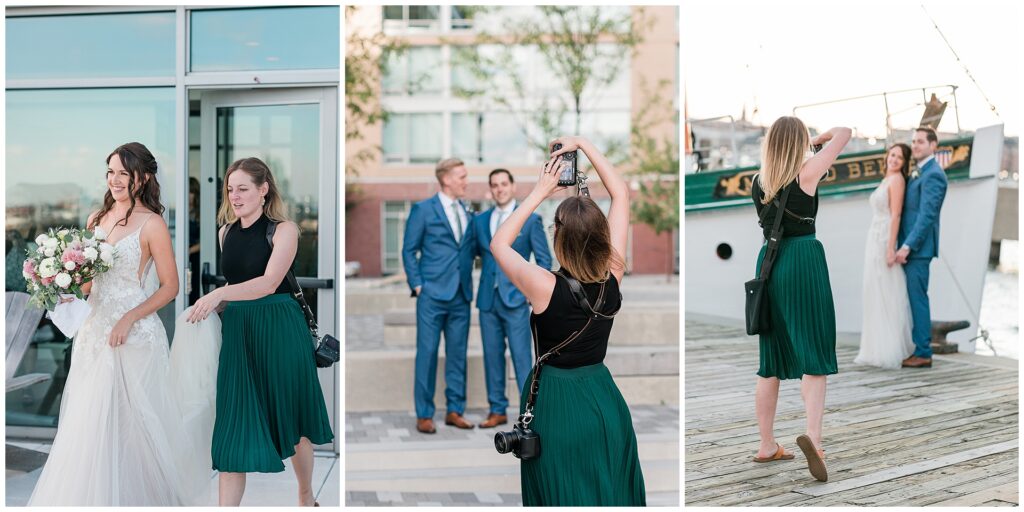
Why Coverage Hours Matter More Than You Think
Wedding photography isn’t just about beautiful images—it’s about storytelling. Your final album is a visual heirloom, and like any great story, it needs a beginning, middle, and end.
- The beginning: Think quiet moments in the getting-ready suite, invitation flatlays, your mom buttoning the dress, your partner fixing their cufflinks.
- The middle: Your ceremony, portraits, and joyful mingling at cocktail hour.
- The end: The laughter, the dancing, and the sparkler exit send-off under the stars.
Each of these moments lives in a different chapter of your day—and if your timeline is too short, those chapters get cut. That’s why choosing the right number of hours is one of the most important planning decisions you’ll make.
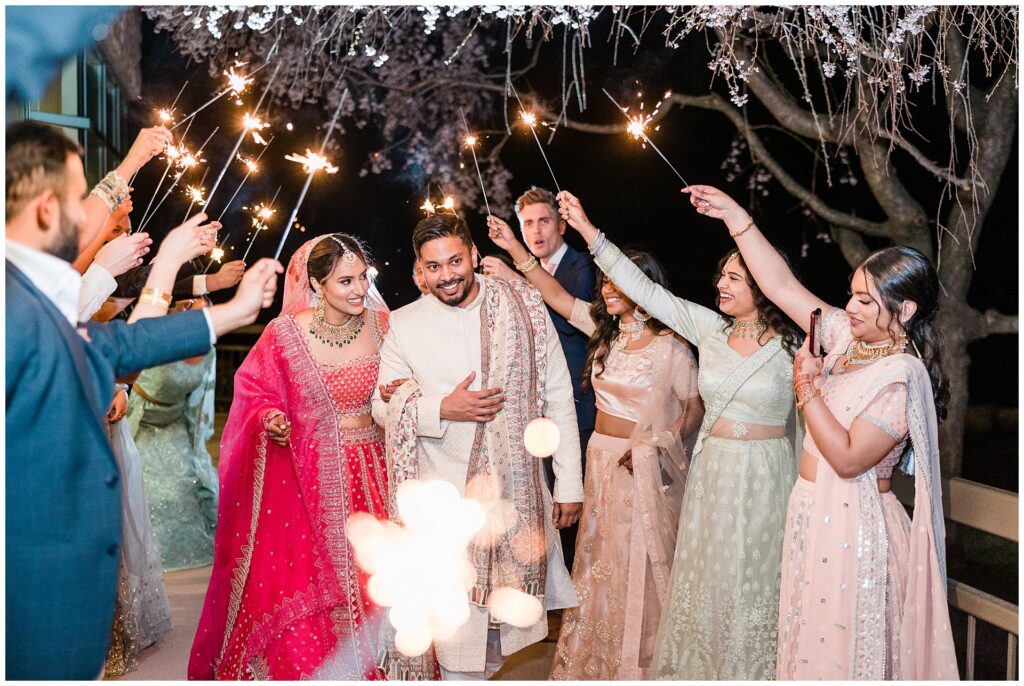
How Many Hours of Wedding Photography Do I Need? Here’s What Each Coverage Level Includes
Every wedding is different, but here’s a quick breakdown of what you can expect to capture at each coverage level.
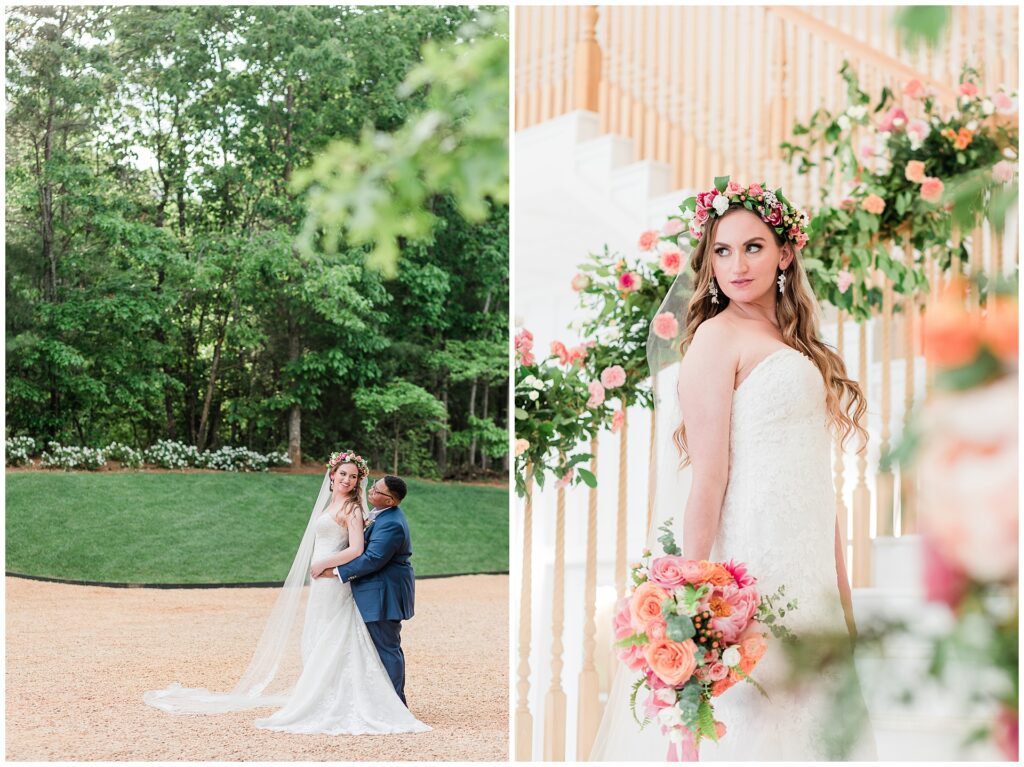
8 Hours – Core Coverage
Eight hours is the golden standard of wedding coverage.
This accommodates about 80% of the weddings I photograph, especially when everything takes place at a single location. It allows for a full, beautiful story—without feeling rushed.
- Getting ready coverage (details, candid moments with loved ones, bridal party, putting on dress/suit)
- Ceremony and couple’s portraits
- 30 minutes to 1 hour of dance floor party coverage
- Designed for weddings where the full event—from prep to final toast—happens in one place
Best for:
Weddings with smaller guest counts, simple logistics, and venues where the ceremony, portraits, and reception all occur on-site—such as the Chesapeake Bay Beach Club or private estates.
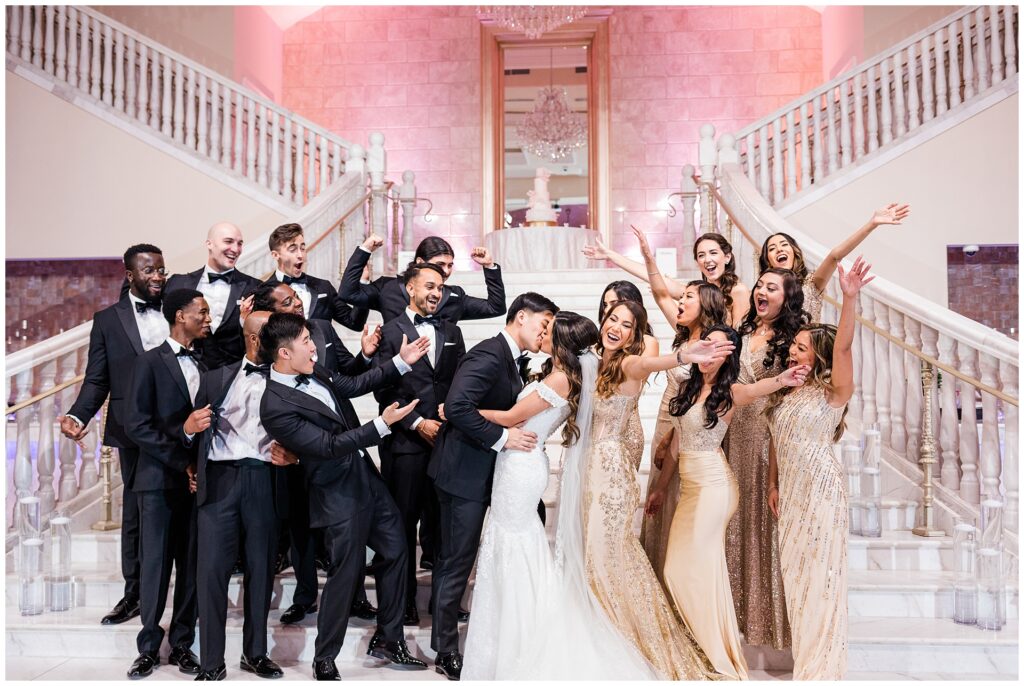
9 Hours – Extra Buffer
Nine hours is ideal when the day has more complexity—but you still want a calm, unhurried experience.
That extra hour allows us to handle split locations, larger groups, or extended moments with intention.
- Everything included in the 8-hour timeline
- Extended getting ready coverage (which allows for a calmer pace and more room for candid storytelling)
- Travel between locations or movement across large-scale on-site venues (like vineyards or resorts where transportation such as golf carts is used between ceremony and reception spots)
- Extended cocktail hour coverage
- Additional time for venue, floral, or design detail photography
Best for:
Couples with separate getting ready locations, large wedding parties, or events with multiple photo locations—even if everything is technically “on-site.” This is often a great fit for expansive venues like Stone Tower Winery, where even on-site transitions require additional time.
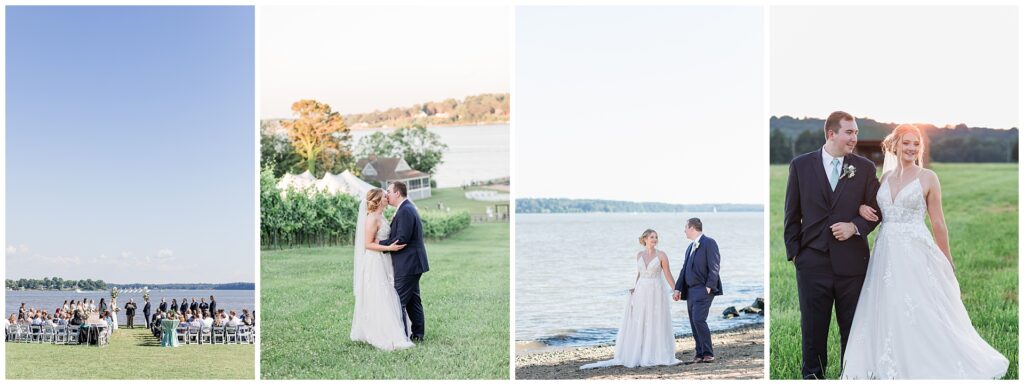
10 Hours – Full Storytelling
Ten hours is best for couples who want the full emotional arc of their day captured—from the first quiet moment to the final sparkler exit.
It’s also the standard I recommend for any wedding involving travel, large-scale production, or layered logistics.
- Everything included in the 9-hour timeline
- Full reception coverage through the end of the night, including dancing and send-off
- Extra time for unplanned delays, private couple moments, or relaxed transitions
- Ideal for Catholic or extended-length ceremonies
- Necessary for DC-based weddings, where traffic, parking, and city navigation consume valuable time even for short-distance moves
Best for:
Weddings with longer ceremonies, multiple travel points, or larger guest counts—especially city weddings in Washington, DC, such as those at the Watergate Hotel, where logistics require built-in buffer time.
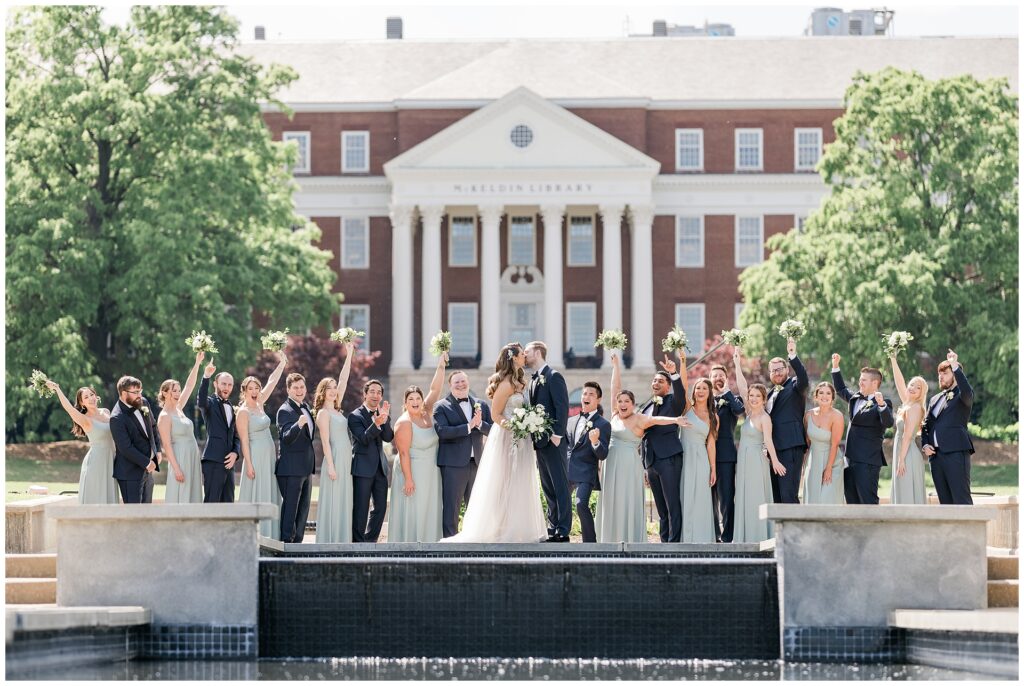
Real Wedding Example: Why Laura & Carter Needed 10 Hours
At Laura and Carter’s University of Maryland wedding, 10 hours of coverage was essential. The day began with getting ready at The Hotel which is across the street, followed by a rooftop first look.
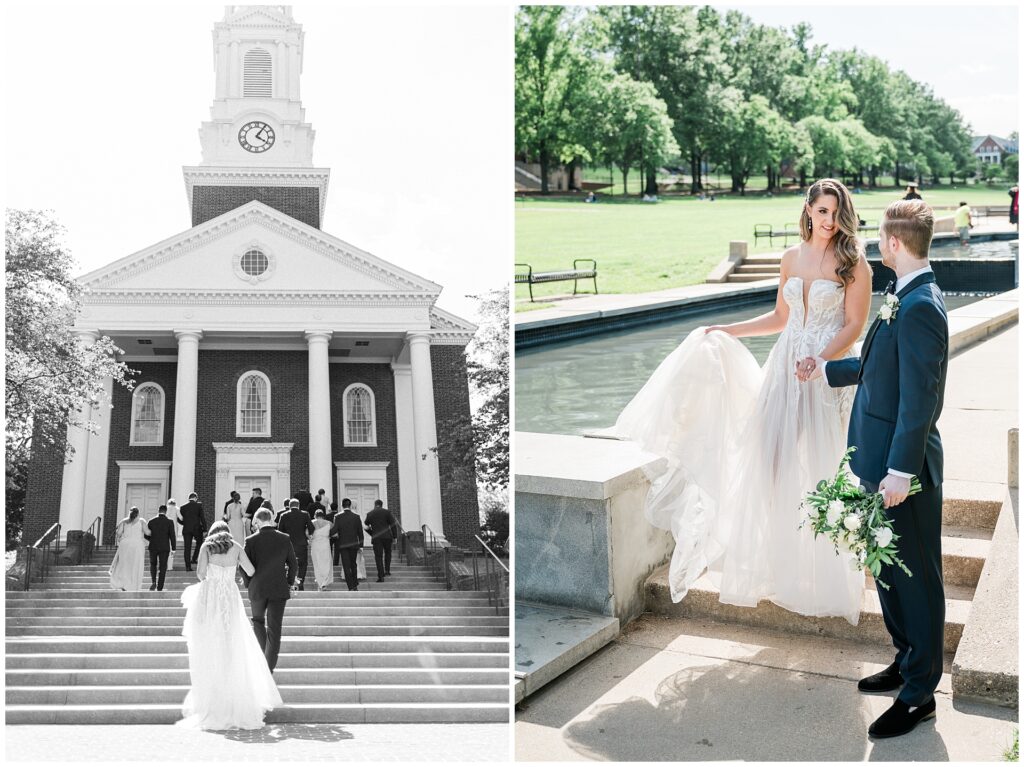
Their 20-person wedding party then had to be transported to the main campus green for portraits—Laura was adamant about capturing a full-group photo at the top of the iconic fountain. We budgeted 90 minutes to leave the hotel, coordinate group shots, divide into bride/bridesmaids and groom/groomsmen portraits, and complete individual photos before walking to the chapel for their ceremony. The other big challenge was taking a group photo of every single guest.
It was a major logistical feat—but because we had a comprehensive, well-paced timeline, we captured every moment without stress.
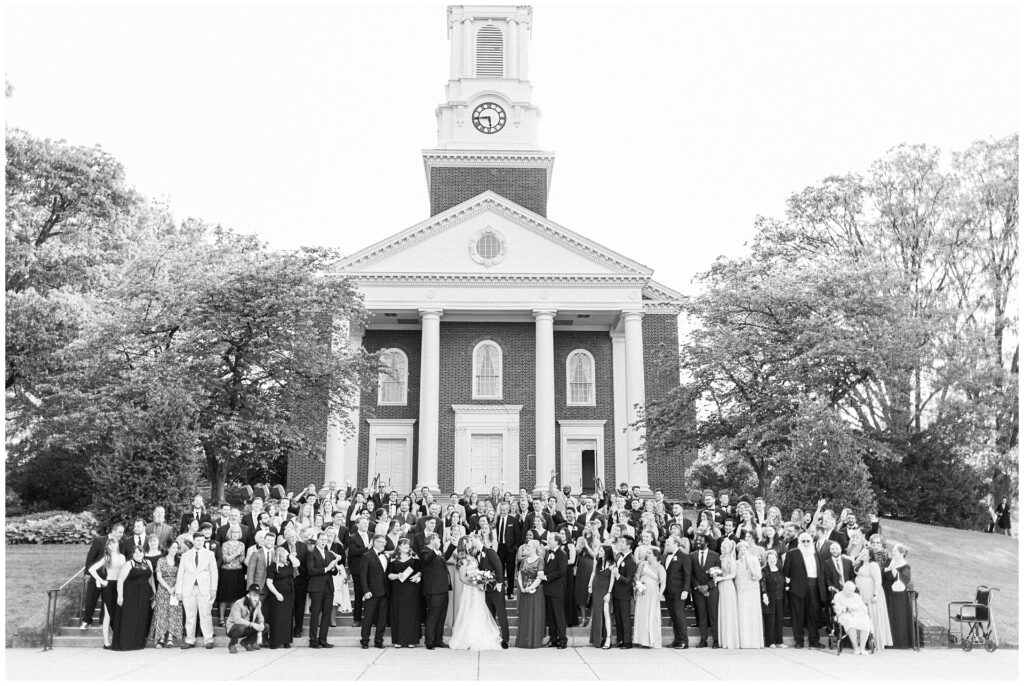
11 Hours and Beyond – Bespoke Coverage
Eleven hours and beyond is reserved for the truly exceptional wedding day.
This level of coverage is rarely needed—but when it is, it’s because your vision includes something distinctive: extensive travel, immersive guest experiences, or events that stretch well into the night.
- Everything included in the 10-hour timeline
- Extensive travel between venues or destinations (for example, driving 1–2 hours between prep, ceremony, and reception sites)
- Use of expansive or multi-part venues that require added time for transitions (such as resorts or estates where multiple ceremony sites, portrait spots, or reception spaces are used throughout the day)
- Cultural or ceremonial elements layered before the main event—such as a tea ceremony before a religious ceremony, or extended family formal sessions
- Late-night reception coverage, after-parties, or special send-offs like fireworks displays
- Unique creative portrait experiences, such as a private sailboat session at Inn at Perry Cabin, or other location-specific moments that require custom scheduling
Best for:
Couples planning multi-part wedding days, cultural celebrations, or unique portrait-driven experiences that fall outside the traditional timeline. Venues like the Inn at Perry Cabin often inspire this level of flexibility when you want every chapter of your day documented without compromise.
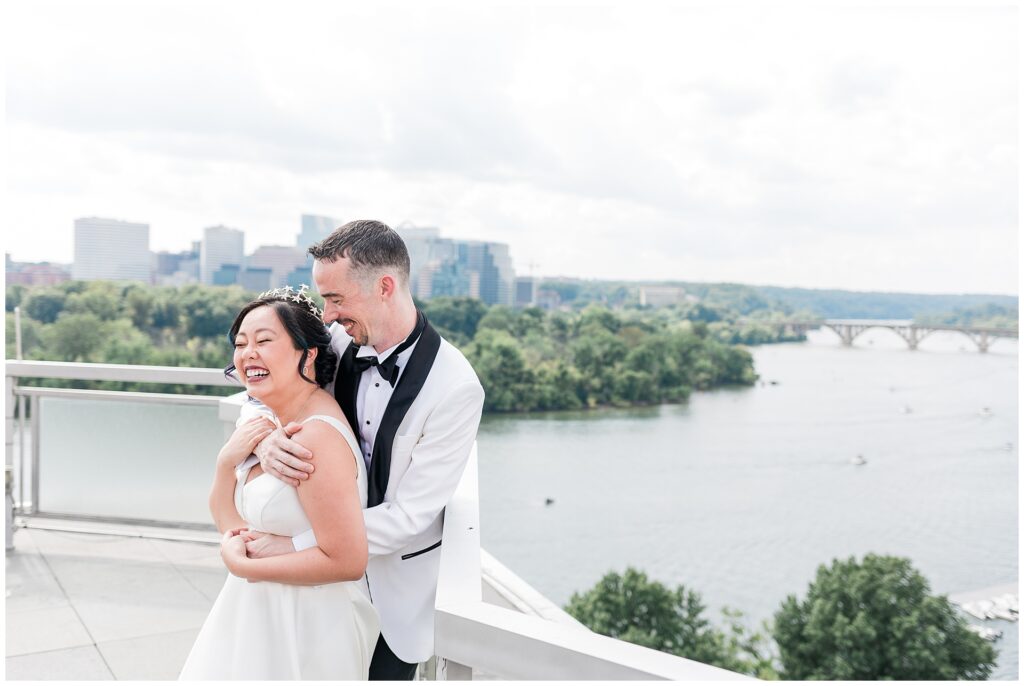
The Hidden Time Thieves Couples Don’t Expect
You might think, “But everything is at one venue!” or “We’re keeping things simple!” And yet, some of the biggest timeline snags happen in the quietest moments.
Getting Ready Takes Longer Than You Think
It might take 15 minutes to throw on a dress for a night out—but a wedding gown, veil, jewelry, and emotional moments with family? That’s easily 30–45 minutes. Add in hair and makeup running a bit behind, and suddenly you’re playing catch-up before the ceremony even begins.
Moving More People = More Time
Whether it’s the wedding party heading to portraits or the family lining up for formals, gathering a group always takes longer than expected. Someone forgot their bouquet. Someone else needs to fix their tie. You need buffer time not just for logistics—but for breathing.
Travel, Especially in DC
If you’re getting married in Washington, DC or moving between multiple locations, we always build in extra time for traffic, parking, and unexpected delays. I never trust GPS times alone. I’ve seen 20-minute drives turn into 45-minute delays just from a protest or game day traffic. For city weddings, we never gamble—we plan for peace.
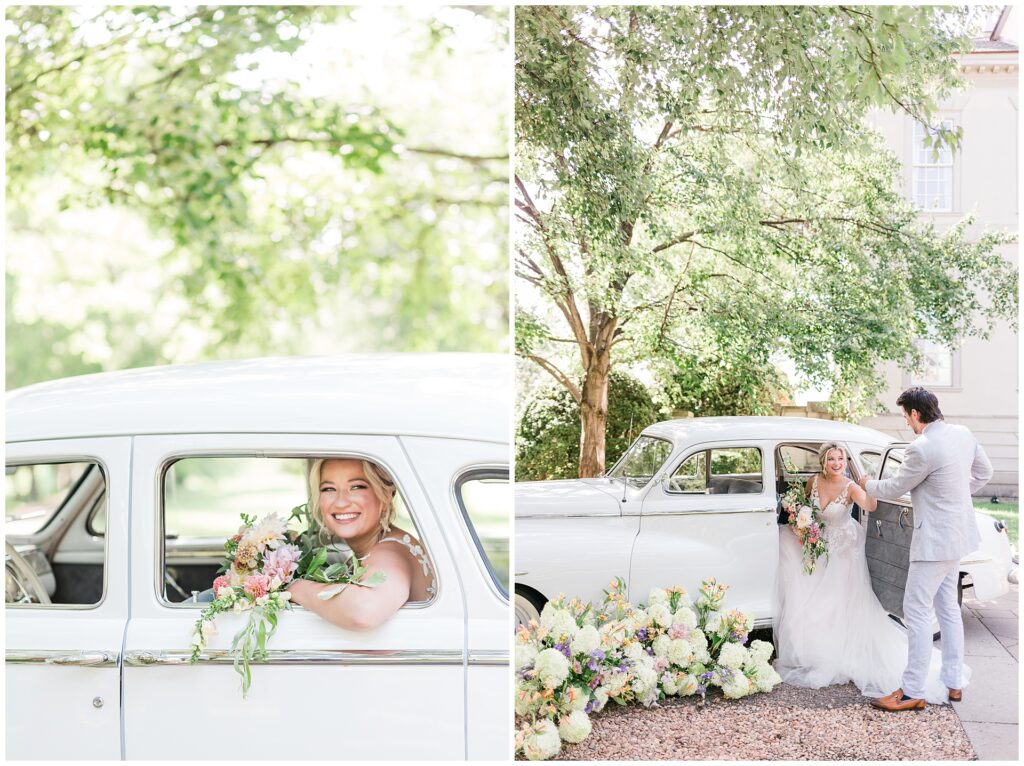
What Gets Missed When Time Runs Out
The biggest regret couples have? Feeling rushed.
When time is too tight:
- You may skip portraits with grandparents or wedding party candids
- We might miss sunset light or need to cut your first look
- You’ll feel the stress—and it will show in your photos
There’s a visible difference between someone smiling for the camera and someone radiating joy in the moment. My job is to protect the space for those authentic moments to happen—and that means protecting your timeline.
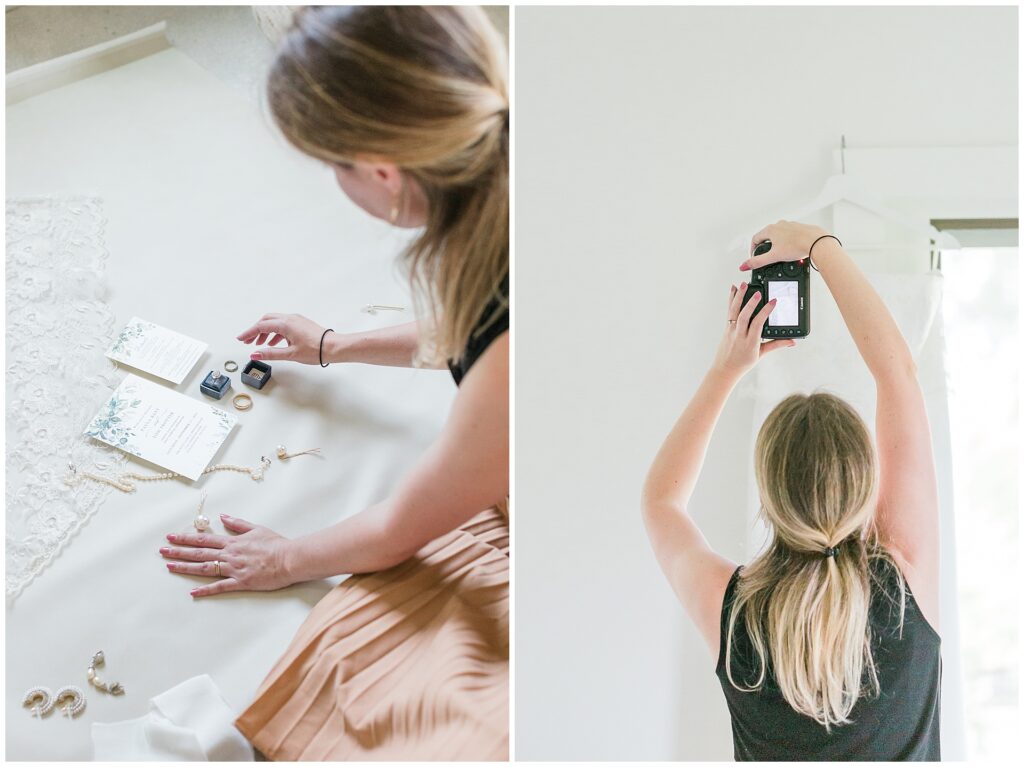
How I Help You Decide (Before You Even Book)
Here’s something that surprises most couples: I build your custom wedding photography timeline before we sign a contract. Why?
Because most people don’t know what a wedding day actually requires. I do.
And it’s my job to translate your vision—your ceremony time, locations, priorities—into a real-world schedule.
This gives you two huge advantages:
- Clarity. You’ll see exactly how your day flows, and what’s possible with each coverage level.
- Confidence. You’ll know how many hours you truly need—before you commit financially.
This early timeline becomes a powerful planning tool. It helps you coordinate with hair and makeup artists, share expectations with family, and make thoughtful choices—like doing a first look to free up cocktail hour.
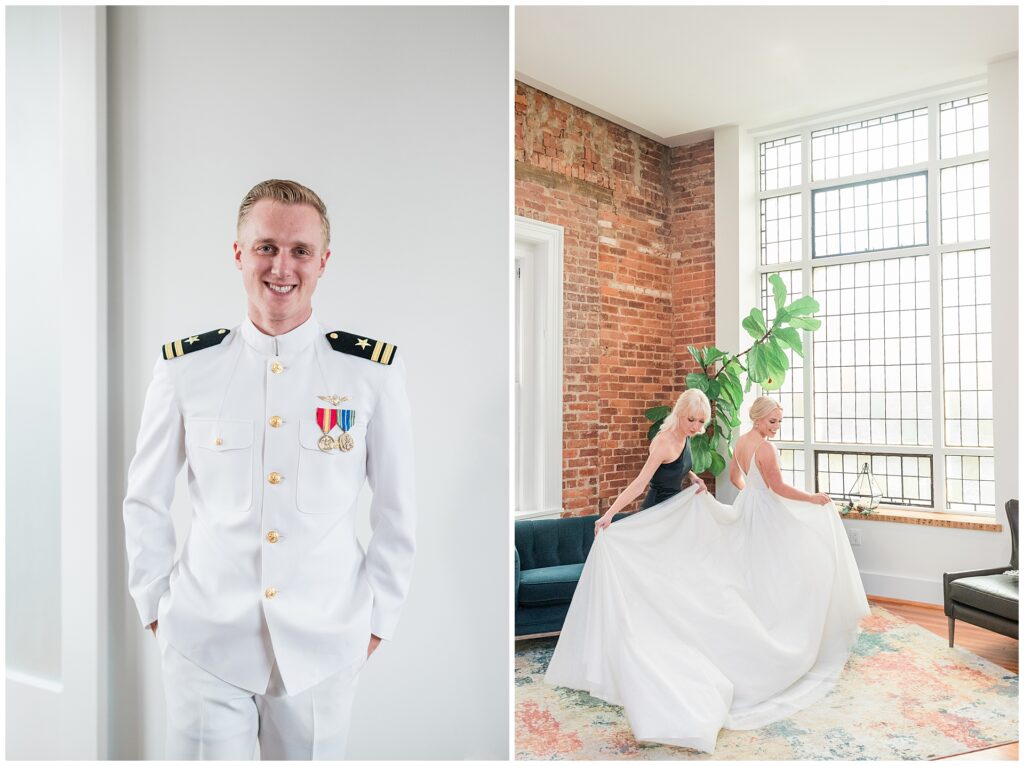
Photography Is More Than a Service—It’s Peace of Mind
My role is to advocate for your time, your experience, and your legacy. I don’t just show up with a camera. I’m your timeline collaborator, a calm presence on a joyful but fast-paced day.
And yes, I want you to have stunning portraits. But more than that, I want you to live your wedding day. To pause. To breathe. To look around and see your people, your love, and the celebration you built.
When we have the right amount of coverage, you get more than photos.
You get space. You get peace. You get your full story.
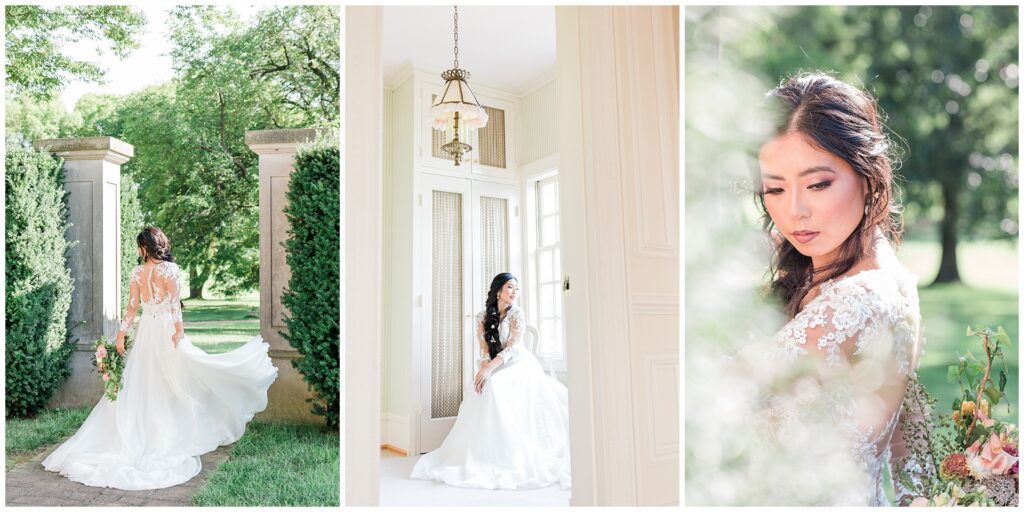
Not Sure How Much Coverage You Need
I’d love to help. No pressure—just clarity.
Let’s chat through your day and I’ll build you a custom timeline that protects your memories and your peace of mind.
Reach out here to start the conversation
You May Also Enjoy
Fall at Stone Tower Winery | Madeline & Kenneth
Does it matter if my photographer has worked at my venue before?